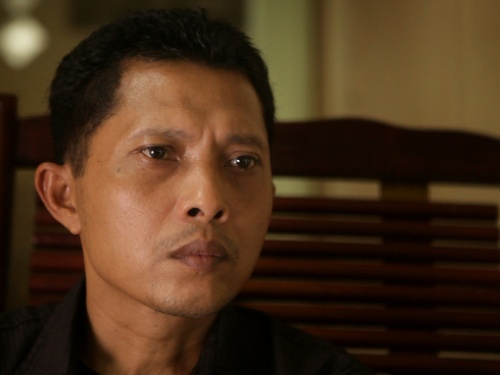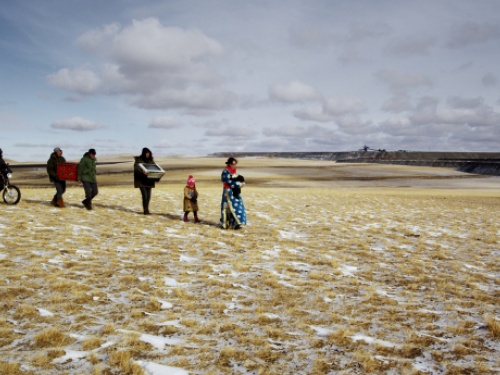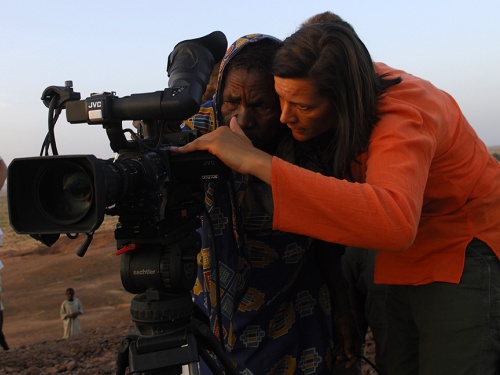Frames of Representation: Working
An Introduction to FoR 2017
Ahead of this year's Frames of Representation (FoR): New Visions for Documentary Cinema 2017, festival curator and ICA film programmer Nico Marzano tells the ICA Bulletin what to look forward to in this year's festival.
The Frames of Representation (FoR) film festival returns to the ICA this year for its second iteration. Once again the festival includes UK and international premieres showcasing filmmakers from Argentina, Denmark, Venezuela, Poland, India and films from Brazil, France, Germany and Portugal. After a successful first edition in 2016, attended by more than 2,000 visitors who created an unprecedented feeling of community at each screening and talk, this year’s festival gives us the opportunity to engage with pioneering documentary filmmakers alongside a diverse programme of screenings, masterclasses, workshops and Q&As.
The festival this year reflects on the contemporary experience of working. Through this theme, it aims to explore the significance of work today and its social, political and cultural functions. The films traverse varied visual and cultural terrain: the rough and the smooth, the known and the unknown. They engage with issues of labour and exploitation, power and access to knowledge, and technology as a vehicle for change. Interrogating the boundaries between genres and visual languages, the festival aims to expand the parameters of art and activism, offering a space for critical engagement and social commentary. What are the ethics of representing exploitation on screen? How can cinema reflect on and offer new tools for production? How can filmmakers represent and interrogate the ambiguities of modern industry and post-work cultures?
What are the ethics of representing exploitation on screen? How can cinema reflect on and offer new tools for production?
The eight-day programme features eleven feature-length documentaries and eight supporting activities. These activities respond to the films in order to provoke reflection on the ethical and political implications of distinctive cinematic languages and voices. The festival aims to generate and support dialogue around emerging practices in documentary cinema. In particular, we champion films that explore the tension between authenticity and artifice, engaging with both the material realities of working and the fictional frames of filmmaking.
The opening night of this year’s festival presents the UK premiere of the visually astonishing Machines by Rahul Jain. Jain’s first feature film is a haunting exploration of the meaning of modern-day labour. After presenting Mogadishu Soldier, a raw and unfiltered exploration of life in the Somalian war zone seen through the eyes of two Burundian soldiers, we are delighted to welcome Joshua Oppenheimer, the Oscar-nominated and BAFTA-winning director of the ground-breaking documentaries The Act of Killing (2012) and The Look of Silence (2014), and Mogadishu Soldier's executive producer. Hosted by Eric Hynes, Oppenheimer discusses his filmmaking methodologies, and how they engage with notions of ‘otherness’ in documentary cinema. While last year’s festival included a Mexican programme, this year we profile Argentina’s vibrant film scene, considering resurgent methodologies of documentary cinema, including Eduardo Williams's acclaimed The Human Surge. Through visual explorations of isolation and silence, Diego Gachassin and Matias Scarvaci’s Docile Bodies and Nele Wohlatz’s The Future Perfect offer further perspectives on the Argentinian documentary landscape.
Intimate conversations and a meditation on psychotherapy through cinema take place in Paweł Łozinski’s You Have No Idea How Much I Love You. Salome Lamas’ Eldorado XXI and Jorge Thielen Armand’s The Solitude provide us with stimulating ethnographic narratives, which give voice to people in the Peruvian Andes and in the beautiful derelict mansions of Venezuela. The final weekend of the festival wraps up with with Zayne Akyol’s Gulîstan, Land of Roses, which features mesmerising interviews exploring the motivations and fears of young female guerrillas in Kurdistan, while Tizza Covi and Rainer Frimmel’s Mister Universo and Omar A. Razzak’s The Calm Tempest take us on evocative journeys through Italian communities working on the edges of society.
We champion films that explore the tension between authenticity and artifice, reflecting on both the material realities of working and the fictional frames of filmmaking.
This year we also collaborate with Radio Atlas, a platform for visualised radio, which presents a unique and innovative programme of radio documentaries to experience within a cinema space. Further highlights of the programme include a series of in-depth masterclasses, workshops and panel discussions addressing the craft of contemporary documentary cinema and the ethical challenges of making a film. New York-based film critic and curator Eric Hynes will lead a roundtable on the role of documentary criticism and its relationship to filmmaking practices, and the final panel discussion of the festival looks at the ethics of representing labour on film, as well as the importance of considering the infrastructures of working bodies that support the process of filmmaking itself.
With the firm desire to provide an opportunity for us to come together and reflect on some uncomfortable yet very timely issues, we have curated this festival in the hope that the lens of documentary cinema can engender some much-needed change.
This article is posted in: Articles, Film
Tagged with: Frames of Representation, FoR17, Documentary Cinema, Working, ICA Cinema, Documentary Filmmaking








